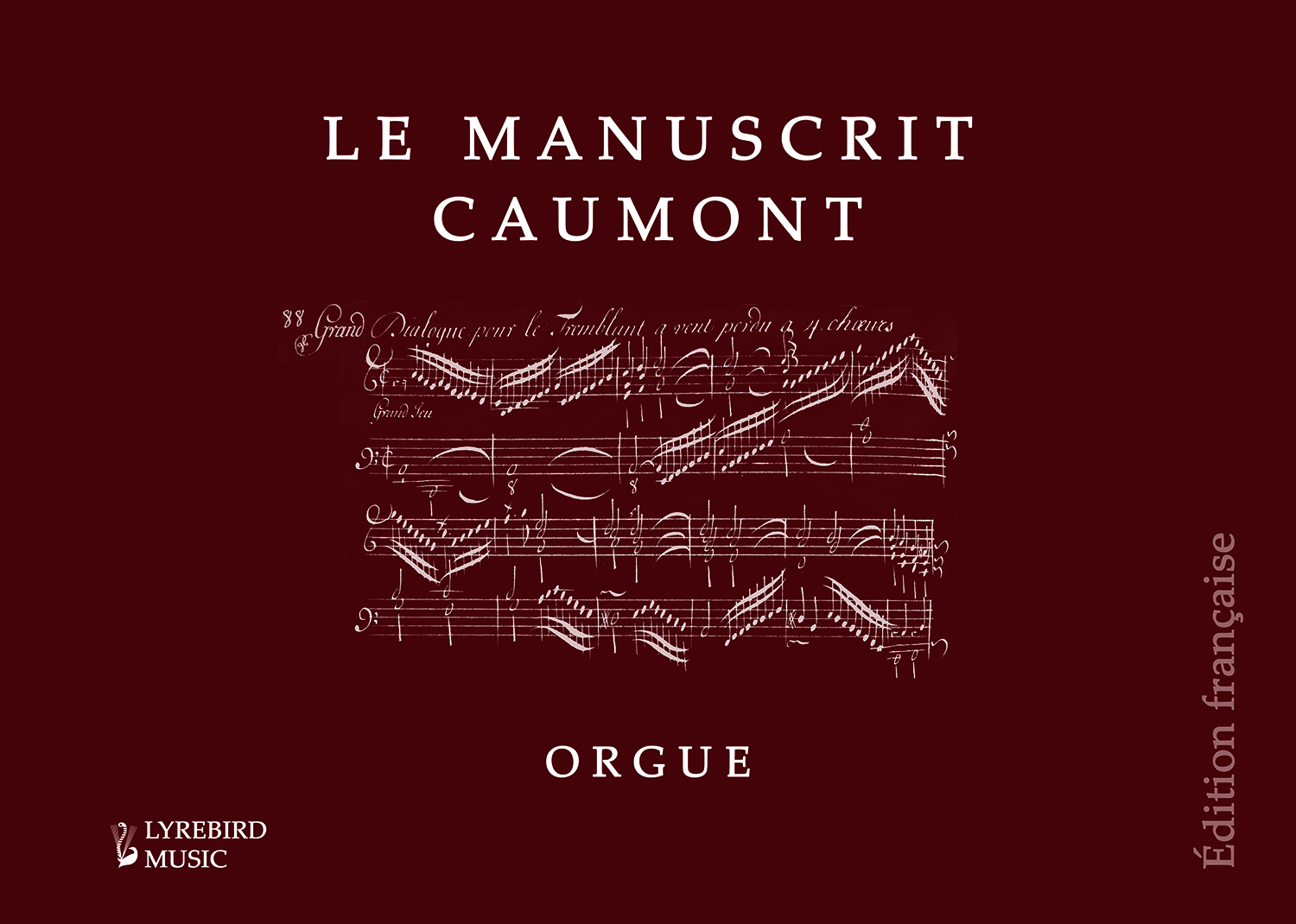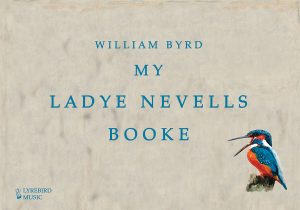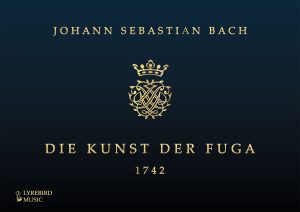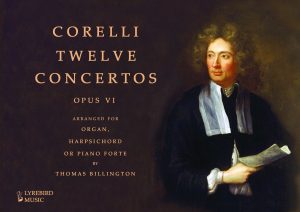LBMP–019: Le Manuscrit Caumont Orgue
€48.18 – €59.92 (+ VAT for EU customers)
ISMN: 979-0-706670-18-8 (English Hardback) | 979-0-706670-19-5 (French Hardback) | 979-0-706670-39-3 (English Wire) | 979-0-706670-40-9 (French Wire)
231 pages
Edited by Jon Baxendale
- A new and exciting discovery of unknown French organ music from 1707
- Both English and French versions available (please using the dropdown options below)
- Detailed preface containing information on the manuscript, its music, performance notes and instruments
- Full critical commentary
- Three available formats
- Colour hardback cover with a matt finish (choice on checkout)
- Wire-bound with soft colour cover (choice on checkout)
- Tablet (PDF – one download available for 5 days)
Prices vary according to your needs. Please first choose the format you require.
Until this edition, Le Manuscrit Caumont Orgue (1707) has been entirely unknown to organists and students of French Classical organ literature. Its pages contain some music we can identify and whose composers are familiar to us, though the wealth of its contents lies in over 80 pieces that are unique to this one volume. Although no composer is identified, Caumont Orgue’s editor, Jon Baxendale, has searched for a possible candidate and has discovered them to be by the Rouanaisse organist and composer Jacques Boyvin.
This Lyrebird Music edition is the first time these works have seen the light of day for over three centuries. A substantial preface examines both the manuscript and its music and discusses such performance issues as registration, fingering, notes inégales and ornamentation using sources contemporary to the manuscript itself.
Jusqu’à cette édition, Le Manuscrit Caumont Orgue (1707) était totalement inconnu des organistes et des étudiants de la littérature française classique pour orgue. Ses pages contiennent de la musique que nous pouvons identifier et dont les compositeurs nous sont familiers, mais la richesse de son contenu réside dans plus de 80 pièces qui sont uniques à ce seul volume. Bien qu’aucun compositeur ne soit identifié, l’éditeur de l’Orgue de Caumont, Jon Baxendale, a cherché un candidat possible et a découvert qu’il s’agissait de pièces de l’organiste et compositeur rouanais Jacques Boyvin.
Cette édition de Lyrebird Music est la première où ces œuvres ont vu la lumière du jour depuis plus de trois siècles. Une préface substantielle examine à la fois le manuscrit et sa musique et aborde des thèmes liés à l’exécution tels que la registration, le doigté, les notes inégales et l’ornementation en utilisant des sources contemporaines du manuscrit lui-même.
Organists’ Review: June 2022
Early Music Reviews: April 2022
This Lyrebird Music edition brings to life an important manuscript of French Classical organ music dated 1707. Its earlier provenance is unknown until it appeared in an auction in Normandy from where it passed on to an antique dealer in Amiens. It was bought from there in 2008 by the current owner, whose name has been attached to what is now known as Le Manuscrit Caumont. Very sensibly, given the quality of his other Lyrebird Music editions, the owner asked Jon Baxendale to research and edit the manuscript and produce this splendid edition.
The manuscript contains 111 pieces of organ music intended for use during the French Catholic liturgy with its use of alternatim, where verses of Mass and other settings were alternately either sung or played on the organ. Some of the pieces can be identified with known composers such as Boyvin, Lebegue, Nivers, Raison and Thomelin, but around 80 pieces are unique to this manuscript. In a very well-presented argument in the detailed preface, editor Jon Baxendale proposes Jacques Boyvin (c1649-1706) as the composer of these 80 pieces, adding to the 25 pieces that have versions in his two published books of organ works (1689 and 1700). The manuscript was possibly copied from a manuscript that Boyvin put together, which would explain why so many of his own pieces did not have his own name attached. Boyvin was born in Paris but spent the bulk of his career as organist of Rouen Cathedral, a successor to the famed Jean Titelouze from around 40 years earlier. He supervised the 1689 rebuilding of the four-manual Clicquot cathedral organ.
The manuscript is unusual compared to other organ books of the period in that the pieces are not arranged in any liturgical form, but are roughly in order of the genre of the pieces. The opening four Preludes are following by groups of pieces with titles of, for example, Fugue grave, Duo, Basse de Trompette, Dialogue. They are all in the church tones V and VI, suggesting the original presence of further volumes using the other tones. The length of the pieces varies from a few bars to 172 bars for the single named Offertory – the Grand Dialogue a trois ou quatre Chœurs avec le Tremblant a vent perdu.
The substantial preface explores the manuscript and its music and discusses such important performance issues as registration, fingering, notes inégales and ornamentation using sources contemporary to the manuscript itself. The notes on performance include the preface to Boyvin’s own 1680 organ book (with English translation), and includes the specification of his own Rouen organ. A section on the liturgical context of the music is included, with Nivers’ description of the use of the organ in the liturgy. A Critical Commentary includes notes on individual pieces as well as details of the variants between these pieces and other printed sources. The manuscript is remarkably accurate in terms of notes, so editorial amendments are minimal and clearly indicated. Ease of page turns is taken into account where possible.
As with other Lyrebird Music publications, the musical type is beautifully clear to read. It is in landscape format, and is available in English and French versions, and in hardback or wire-binding. The hardback version doesn’t take too much persuasion to lay flat on the music desk. The ISMN references for the French edition are 979-0-706670-19-5 (French hardback) and 979-0-706670-40-9 (French softback wire).
This is the first of two Caumont manuscripts, the other being a book of harpsichord pieces in the same hand, much of which is also unknown. It will be published later this year.
Andrew Benson-Wilson
Early Music Reviews
Your Shopping Cart
Archives
Categories
Recent Posts
- Choir & Organ Magazine August 22, 2022
- Keith Harrington August 22, 2022
- Marie-Louise Langlais August 22, 2022
- James Kibbie August 22, 2022
Categories
- Testimonial (4)
- Uncategorized (1)




